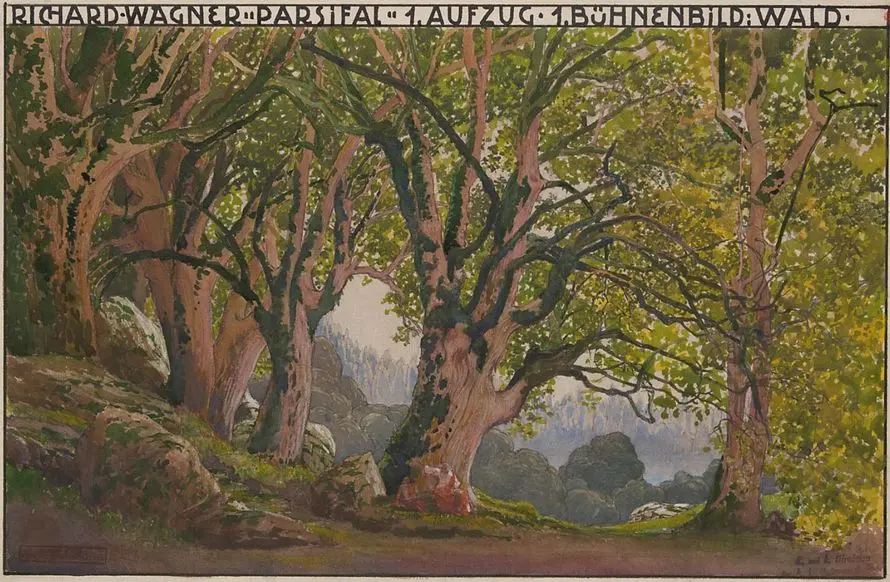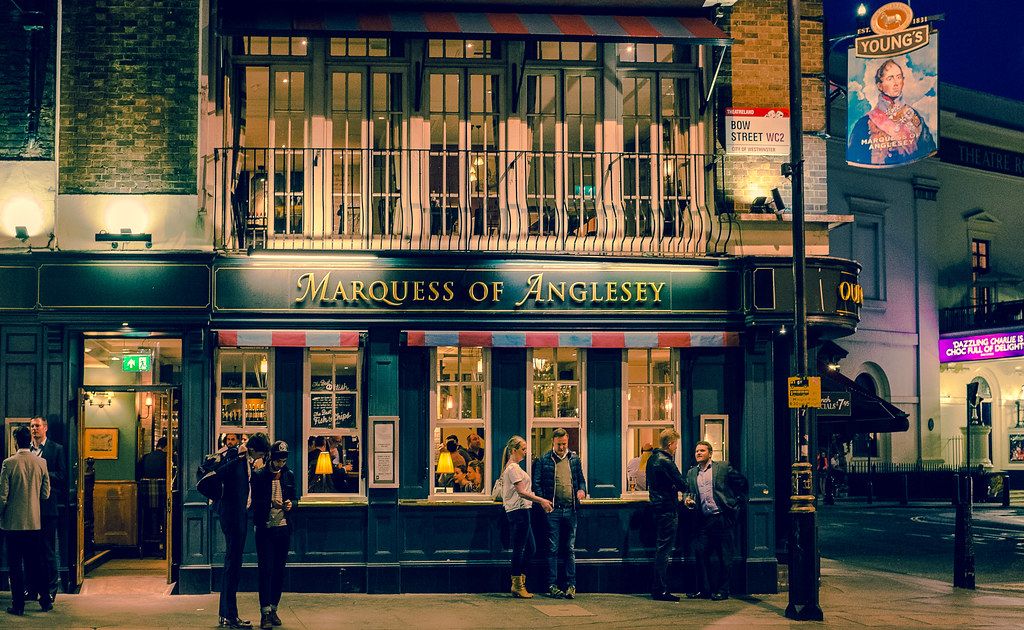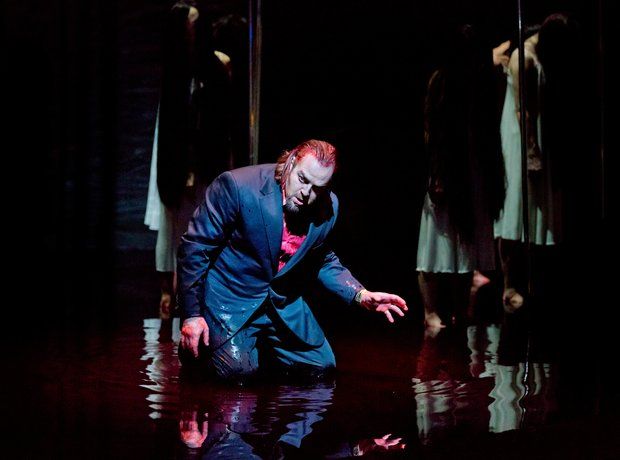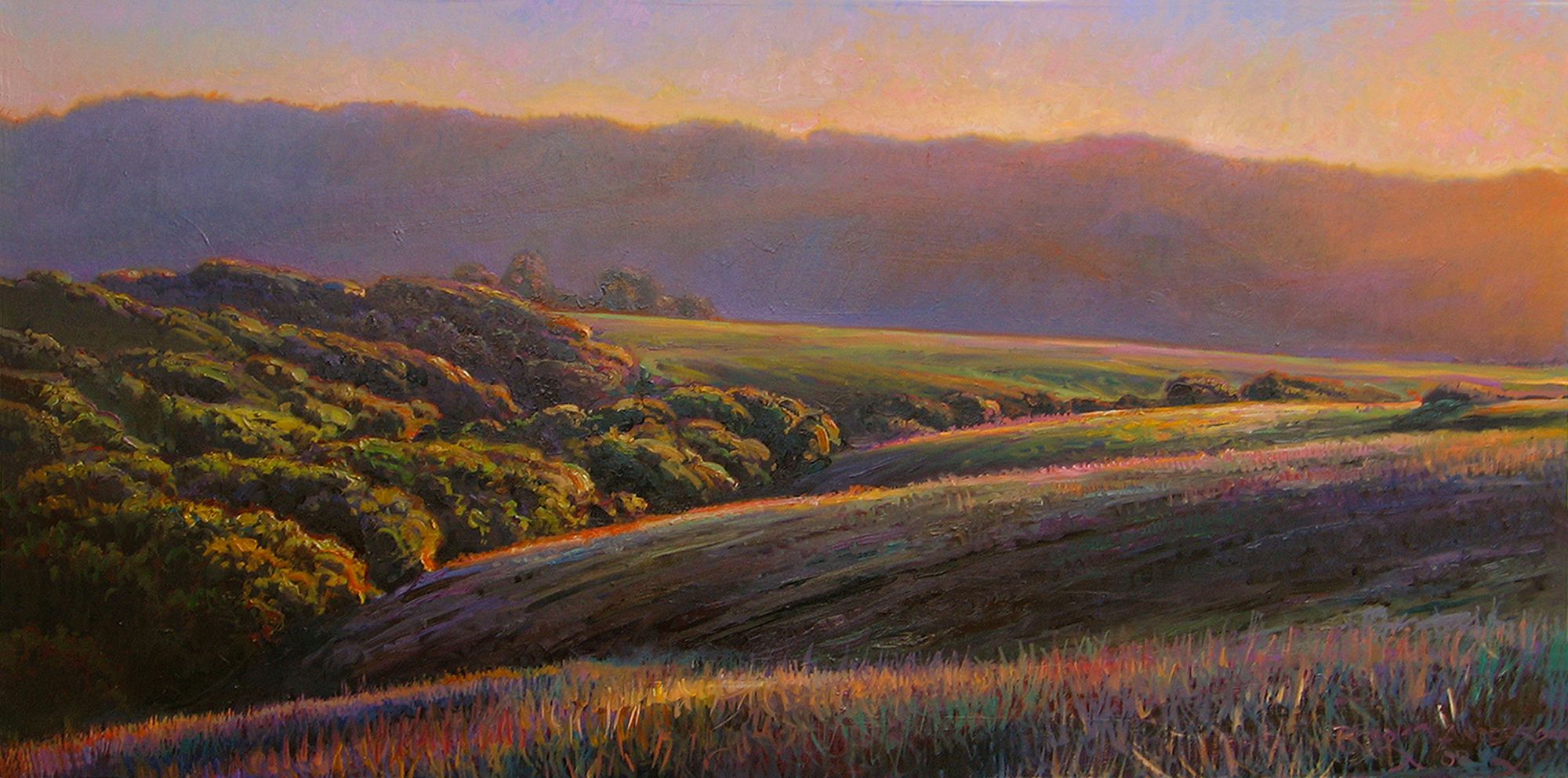GOOD FRIDAY MAGIC

"We're fools to try to relieve the pain, when only healing will bring relief! In vain hope we search and scour the world for herbs and potions; there's only one cure."
Act 1
A man in his late 20's boards a train from Stroud to Paddington. His anxiety courses through his body like a fizzing bomb as he wonders why the hell he booked himself a ticket to see a five hour German opera when he can barely handle a quick trip into town.
The closer he gets to the city, the more his panic increases as his heart begins to palpitate; he feels starved for air and becomes excessively self conscious in public, although no-one appears to notice his inner turmoil.
Walking through Covent Garden like a man with a death sentence hanging over his head, he rues his own whimsy at journeying so far to go on a cultural pilgrimage at such a ruinous time as this.
Nevertheless, he just about navigates his way from the street to his seat in the upper ampitheatre of the Royal Opera House where he feels well and truly trapped as he's situated centre of the row without any easy access to the exits should he need to break free due to his feverish anxiety condition.
As the overture to act one of Wagner's Parsifal begins, all the man can think about is his quickly beating heart which seems to be running at an entirely opposite time signature to the slow, funereal pace of the music. This, in turn, only exacerbates his sense of panic all the more as he wants to run all the way back to Paddington now and return to Stroud. Five hours of this solemn insanity will surely kill him, he thinks.
Looking at the audience all around him, he feels as if he's some sort of anxiety alien dropped onto a planet of normal people. They all look so calm listening to the music; he wonders if he might ever be able to relax like they do in such a setting ever again.
Right now, all he can think about is how to make a mad dash for the exit without causing alarm. His self conscious neurosis however keeps him rooted to his seat as slowly on stage the gravely ill Amfortas turns up for his daily bath in the woodland lake by the castle of the grail.
"A brief rest. After a night filled with pain now comes this glorious morning! In the holy lake may the waters refresh me, ease my anguish, brighten the night of pain." - Amfortas

It says a lot about the man's mental distress that, sitting all the way up in the Gods watching on, he envies Amfortas in his sickly state. How he wishes he had a holy lake to refresh him and ease his own anguish right now. He'd be lucky if he makes it to the end of Act 1 without stroking out. Amfortas, he already knew, would still be hanging around til Act 3 which seems a lifetime away at this point.
And yet, at some stage during the half way point of Act 1, something happens to the nervous man who finds his focus begins to shift ever so slightly from the self absorbed myopia of his own condition to that of the action on the stage. After young Parsifal is guided by Gurnemanz toward the castle of the grail, he momentarily forgets about his accelerated heart rate and begins to stabilise with the steady certainty of the transformation music distracting his stressed and pre-occupied mind.
Act 1 of Parsifal is as long in length as most Italian operas in total. Now that he has reached the castle of the grail and hasn't died in his seat, the man begin to think less of the exits and returning to Paddington and where he might possibly go for a drink at the interval. He remembers an old fashioned pub opposite the opera house where he fancies he might have a pint of guinness, which might be as close as he'll find to the mysterious flask of balsam Kundry provides the long suffering 'Fisher King' Amfortas as he'll find.

Interval
And there he is, standing upright in the Marquess of Anglesey with pint of guinness in hand and marvelling at the miracle of surviving act one without dying.
His breathing seems more natural now and his heart is beating less fast. Could it be that the music has helped in some way, relaxing both his body and mind? He certainly believes the power of music has the ability to do amazing things and considers that he might just return for Act 2, though he knows the madness of Klingsor's magic garden is a lot more stressful than the contemplative atmosphere of Monsalvat in act one.

"The time has come. The fool is being drawn into my magic castle, I see him approach from afar." - Klingsor
Act 2
Although the flower maidens offer their sweet siren song at the beginning of Act 2 to help further steady the ship of his over stressed mind, the rantings of the sorcerer Klingsor feel like a return to the madness he's only just left behind.
Nevertheless, much like Parsifal, he feels it necessary to confront this demon and whatever he symbolises to him personally, possibly an external representation of his anxiety in human form. Of course, the pint of Guinness is also playing its part in assisting his recovery to normality and so, as the considerably shorter Act 2 comes to its dramatic conclusion, with Klingsor finally defeated, the man becomes further emboldened, believing that he might just see Amfortas in Act 3 against all the odds.

"Be whole, absolved and healed! Now I shall perform your office. O blessed be your suffering, that gave compassion's highest power and purest wisdom's might to the timid fool!"
Act 3
Taking his seat for the final time of the evening, the man feels compelled to take his own bow. How has he managed to end up here nearly five hours later, still breathing? As Parsifal makes his mysterious and long awaited return to the woods by the castle of the grail, the man feels as if he, too, had been on similar death defying quests, years wasted in the wilderness of a madness he has had no ability to find a way through.
Until this very night.
"Good Friday is scarcely understood or more importantly, felt: who else but Wagner could have felt and understood the essence of Karfreitag, which he appropriately called Karfreitagzauber (Good Friday Magic)? And yet we too often forget Wagner’s aesthetic triumphs. That Wagner, the most irreligious and freethinking artist of his own time, came to an appreciation of the aesthetics of Christ’s suffering and sacrifice is awe inspiring. It stands out as the most beautiful and purest of all of his aesthetic and musical triumphs. Parsifal was not some opera, not some mere piece of art; no, Wagner called it a Buhnenweihfestspiel–a play for the consecration of the stage. Through art, and art alone, was religion to be saved. “One might say that where Religion becomes artificial, it is reserved for Art to save the spirit of religion;” yet Wagner was no missionary, no fanatical, no zealot. In all of his works, and Parsifal is no exception, though exceptional it may be in all other aspects, the search for individual love and passion emerge at the fore, personal redemption and agency against that of some supposed God or Son of God." - The Citizen
And as the Good Friday scene commences, he feels dissolved into the present moment, completely at one with the music drama and he almost entirely forgets the prisoner trapped inside his tense body and over wrought mind.
This sense of totality, listening to this most carthartic of scenes in the history of opera, is not something entirely new to him. From his first experience of watching Parsifal in Nikolaus Lehnhoff's iconic production, he had intuitively grasped its importance and how it expressed something about the repeated motif theme of becoming "enlightened through compassion."
In this instance, the compassion was reserved for himself.
And when finally Amfortas is relieved of his seemingly endless pain from the wound that never before healed, the final music becomes ethereal, celestial and transcendent, acheiving along with Bach, the most spiritual music he's ever heard in the history of Western music.
And each Good Friday since, he feels it would be a disservice not to play the entire Act 3 of Parsifal as a reminder of how far he's come from that pit of despair.
Never again, would he regret the impulse to gravitate toward art as medicine for his soul when he was in torment.